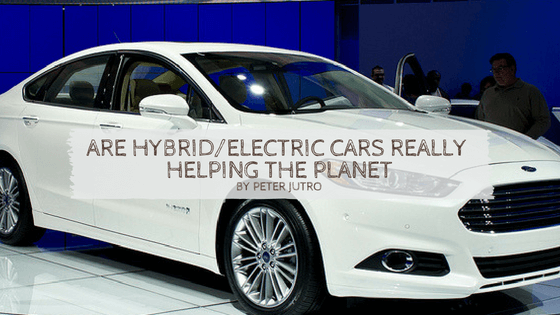More than ever, consumers are excited about cars billed as “zero emission” or “hybrid.” Tesla’s newly released Model 3 is the subject of much recent industry hype; over 500,000 Model 3s have been ordered so far. Hybrids are also breaking into the mainstream; around 4 million hybrid cars have sold in the US since 1992. Auto companies pushing hybrid and electric models relentlessly advertise their vehicles’ low emission levels, but could a fleet of electric cars on the road really slow down climate change?
Although reduced-emission cars themselves burn less (or no) petroleum, the electricity that fuels their rechargeable batteries isn’t necessarily “clean.” In the US, for example, there is about a 40% chance the electricity in question was produced at a coal-fired power plant. The byproduct of those plants is nearly two billion metric tons of carbon dioxide per year, making coal-burning plants America’s largest source of greenhouse emissions.
At face value, it seems that increasing the percentage of electric cars would reduce the 1.7 billion tons of greenhouse gases per year added to the atmosphere by gas-fueled cars. But the demand for power would also increase as more electric vehicles tap into the grid. As of right now, even in states where renewable energy is common–such as California–the amount of greenhouse gas produced per mile by hybrid and electric cars is about equal, based on the excess of electricity needed to keep non-hybrid batteries charged.
However, that proportion doesn’t hold for electric cars in areas that generate a large proportion of power from fossil fuels. In the Midwest and Southern US, for instance, the total amount of greenhouse emissions produced by charging electric cars is actually far greater than that of hybrids. This means that for American drivers looking to minimize emissions, hybrids may be a better choice on average.
Also worth considering is the fact that, of the roughly 1 billion cars in use across the globe, only around 2 million are currently electric. According to the International Energy Agency, that number will rise to 280 million by 2040, but by then the total number of cars is estimated to double as well. The IEA predicts that, due to rising energy demands worldwide, electric vehicles will be responsible for reducing greenhouse emissions by as little as 1% by 2040.
Unfortunately, and in contrast to the narrative of auto companies, the impact of hybrid and electric cars on climate change is likely to be negligible, at least until the power that charges their batteries comes from mostly clean sources. The good news is that renewable energy technologies are slated for widespread adoption, especially in pollution-dense areas like China and India. China in particular plans to reduce its annual coal use by 300 million tons through 2040, and bring up its consumption of renewable energy by an amount equal to 600 million tons of oil per year.

